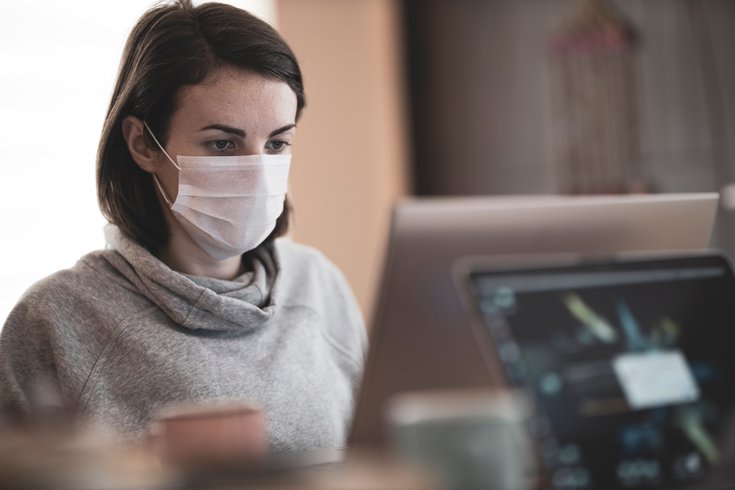
December 02, 2020
 engin akyurt/Unsplash.com
engin akyurt/Unsplash.com
People who are exposed to the coronavirus can end their quarantine after seven days if they are asymptomatic and test negative for COVID-19, the CDC now says.
The U.S. Centers for Disease Control and Prevention has amended its longstanding quarantine guidelines, shortening the time period that some people must quarantine after a possible COVID-19 exposure.
"We are still recommending quarantining for 14 days, but now with two exceptions," Dr. Henry Walke, the CDC's COVID-19 Incident Manager, said during a media briefing Wednesday.
People who remain asymptomatic can end their quarantine after 10 days. The second alternative allows people to stop quarantining after only seven days – if they have remained asymptomatic and received a negative result from a PCR or antigen test.
People who end their quarantine before 14 days should continue to monitor possible symptoms closely, Walke cautioned.
He said shortening the quarantine length may make increase compliance – especially among people who cannot work.
"As we learn more about the virus that causes COVID-19, we have continued to refine our guidelines," he said.
The new recommendations are based on extensive modeling by the CDC and other institutions, explained Dr. John Brooks, chief medical officer for the CDC's COVID-19 response. Though the incubation period for the coronavirus extends to 14 days, most people become infectious much sooner.
"We can safely reduce quarantine while accepting a small residual risk," Brooks said.
The 10-day quarantine increases the risk that a person may actually be infected by 1%. For the seven-day quarantine with a negative test, the risk is 5%.
This risk is acceptable when considering current delays in testing and the financial burdens of having to quarantine, he said.
The CDC also introduced new guidelines for upcoming holiday travel.
The agency is asking Americans to forgo traveling – just like it recommended at Thanksgiving. But anyone who insists on traveling should get tested 1-to-3 days before their trip and again 3-to-5 days after returning.
All travelers should reduce non-essential activities for seven days after their trip – even if they have a negative test.
"The safest thing to do this holiday season is to postpone travel and stay home," said Dr. Cindy Friedman, chief of the CDC's Traveler's Health Branch. "Travel is a door-to-door experience that can spread the virus during travel and into communities."
The CDC made similar recommendations for Thanksgiving, but many Americans still chose to travel over the holiday weekend. Friedman said that hundreds of thousands of new infections could come from Thanksgiving travel.
Anyone who travels should remember that testing doesn't eliminate all risks, she said. It should be combined with other mitigation strategies, including wearing a mask, social distancing and frequent hand washing.
Even when a vaccine for the coronavirus becomes available, these strategies initially will continue to be important, Friedman added.
The CDC's Advisory Committee for Immunization Practices voted, 13-1, Tuesday to recommend that both health care workers and residents of long-term care facilities be the first to receive a COVID-19 vaccine – once one is approved.
The committee is considering a four-phase rollout plan. The next phases most likely will include essential workers like food production workers, firefighters and law enforcement officers. But individual states ultimately will decide how to distribute vaccines.
Both Pfizer and Moderna have submitted vaccines to the U.S. Food and Drug Administration. Data from their Phase 3 clinical trials indicates both vaccines are highly effective.
If both vaccines are approved, an estimated 40 million doses will be available by the end of the year – enough to cover most of the 21 million health care workers and 3 million residents of long-term care facilities. The vaccines each require two doses.
About 40% percent of all U.S. coronavirus deaths have been among long-term care facility residents. The committee, which has advised the CDC director since 1964, recommends that staffers and residents get vaccinated at the same time.
More than 240,000 health care workers have been infected with the coronavirus and 858 have died, according to the CDC.
The committee considers anyone who works at a health care institution as a health care worker. That includes housekeeping and food services employees.
States must submit orders for vaccines by Friday. The FDA is expected to review Pfizer's application on Dec. 10 and Moderna's on Dec. 17.
Once the FDA approves a vaccine, the CDC's advisory committee will vote on whether to endorse its use. The committee also will flesh out recommendations for the next in line.